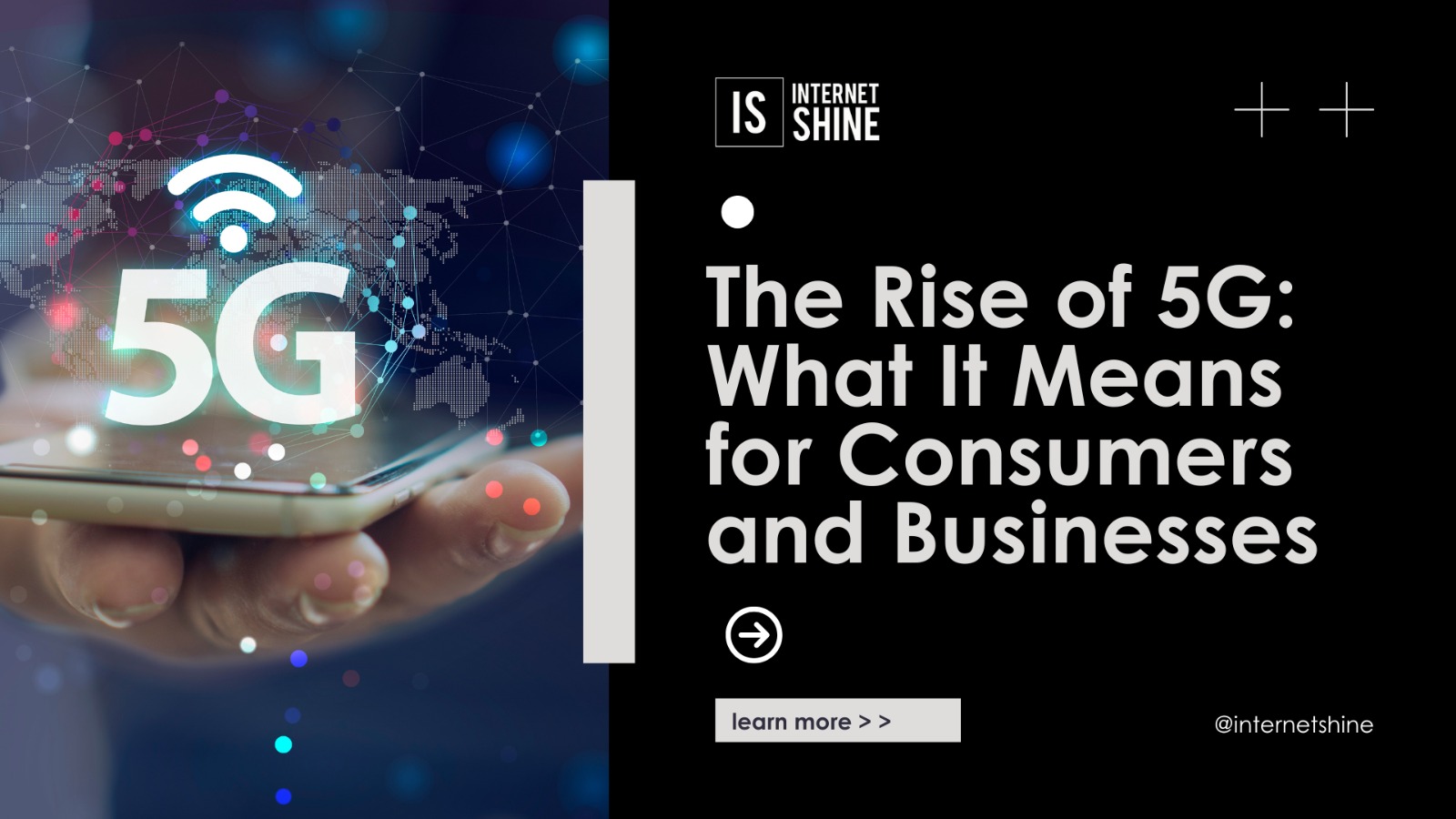The Rise of 5G: What It Means for Consumers and Businesses
In the ever-evolving landscape of technology, the arrival of 5G has been one of the most anticipated advancements. This next-generation wireless technology promises to revolutionize the way we connect, communicate, and conduct business. As 5G networks roll out across the globe, it’s important to understand what this means for both consumers and businesses. Here’s a closer look at the impact of 5G and how it is set to transform various aspects of our lives.
What is 5G?
5G, short for the fifth generation of mobile networks, represents a significant leap forward from its predecessor, 4G LTE. It offers dramatically increased speed, lower latency, and the ability to connect a vast number of devices simultaneously. Unlike previous generations, which primarily focused on improving mobile phone capabilities, 5G is designed to support a wide array of devices and applications, from smartphones to smart cities.
Key Features of 5G:
- Ultra-fast Speeds: 5G can deliver download speeds up to 10 Gbps, which is up to 100 times faster than 4G.
- Low Latency: Latency, or the time it takes for data to travel from one point to another, is reduced to just 1 millisecond, making real-time communication more efficient.
- Massive Device Connectivity: 5G can support up to 1 million devices per square kilometer, enabling the Internet of Things (IoT) to thrive.
Benefits for Consumers
Enhanced Mobile Experience
For consumers, 5G means a dramatically improved mobile experience. High-definition video streaming, augmented reality (AR) applications, and cloud gaming will become smoother and more accessible. Buffering and lag will be things of the past, providing seamless connectivity on the go.
Smart Homes and Wearables
With 5G, smart homes will become even smarter. Devices such as smart thermostats, security cameras, and appliances will communicate more efficiently, leading to greater automation and convenience. Wearables, including fitness trackers and smartwatches, will also benefit from more reliable and faster connections, enhancing their functionality.
Remote Work and Education
The COVID-19 pandemic has accelerated the shift towards remote work and online education. 5G will further support this trend by providing robust and stable connections for video conferencing, virtual classrooms, and remote collaboration tools. This will make remote work more practical and effective, bridging the gap between physical and virtual environments.
Benefits for Businesses
Increased Productivity and Efficiency
For businesses, 5G offers the potential to revolutionize operations. Enhanced connectivity and speed will allow for real-time data analytics, improving decision-making processes. Manufacturing and logistics industries will benefit from more precise and efficient operations, thanks to the integration of IoT devices and automation.
Innovation and New Business Models
5G will be a catalyst for innovation, enabling new business models and services. Augmented reality (AR) and virtual reality (VR) applications will create immersive experiences for customers, while telemedicine will expand, providing remote healthcare services with minimal latency. Retailers can enhance customer experiences with AR, allowing virtual try-ons and interactive shopping.
Enhanced Communication and Collaboration
Businesses will experience a significant boost in communication and collaboration capabilities. With low latency and high-speed connections, virtual meetings will feel more natural and engaging. Teams spread across different locations can collaborate more effectively, sharing large files and data instantaneously.
Challenges and Considerations
While the benefits of 5G are substantial, there are challenges to consider. The rollout of 5G infrastructure requires significant investment and time. There are also concerns regarding data privacy and security, as the increased number of connected devices can create more entry points for cyber threats.
Additionally, there are health and environmental concerns related to the widespread deployment of 5G towers and small cells. Ongoing research and stringent regulations will be essential to address these issues and ensure safe implementation.
Conclusion
The rise of 5G is set to transform the way we live and work, offering unprecedented speed, connectivity, and opportunities for innovation. For consumers, it means an enhanced mobile experience, smarter homes, and better support for remote work and education. For businesses, 5G promises increased productivity, new business models, and improved communication. As with any technological advancement, challenges must be addressed, but the potential benefits of 5G make it a game-changer in our connected world.
As we stand on the brink of this new era, it’s exciting to imagine the possibilities that 5G will bring to our daily lives and the global economy. The future is fast, connected, and filled with potential—welcome to the age of 5G.

